Think back to when you were 12, and the sensation of re-opening your favourite book. (This is The Spectator; I’m assuming you were all bookish 12-year-olds.) The Silver Chair, perhaps, or The Phoenix and the Carpet — some fantastic alternative world, anyway, filled with characters who felt like old friends. The lumbering iron giants, powered by fire and water. The scary-funny vegetable-monster. The terrifying but magnificent queen, and her eerie batsqueak of sexual-ity. And of course, the bit where pillows turn magically into birds and flit about the room.
This new project from the designer/director team Barbe & Doucet initially feels like being pulled into one of those beloved classics. We’re in a grand hotel circa 1900, and it looks fabulous. Black-and-white illustrations — Gustave Doré meets Peter Firmin — are blown up to colossal size, and conjured into life. Characters emerge from two-dimensional backdrops, fireworks flash, and immersive sound effects make cellars drip with glistening damp. Each scene features some new feat of puppetry or trompe l’oeil. It astonishes, it charms; at every turn, it defies you not to be delighted.
Anyway, somewhere beneath all this, gasping piteously for breath, are the squashed remains of Mozart’s Die Zauberflöte. It didn’t have to be that way. Die Zauberflöte exists in a self-contained fantasy world, so a hotel, with its hierarchies, rituals and shadowy back-corridors, makes perfect sense. Barbe & Doucet’s Three Boys are bellboys and Sarastro (Brindley Sherratt, sounding chocolatey) is the Escoffier-like head of a guild of chefs. The Queen of the Night (Caroline Wettergreen) is a demanding guest, and Papageno (Björn Bürger) a pillow salesman. It could have worked a treat, with just the lightest of nudges to help the story on its way.
But Barbe & Doucet don’t do light nudges. It certainly doesn’t demean an intrinsically playful opera to present Tamino and Pamina’s trials by fire and water as a bake-off followed by a dishwashing challenge. If love on equal terms is at the core of Die Zauberflöte’s message, domesticity really matters. By that point, though, Barbe & Doucet have ladled on so many new layers of meaning that indigestion sets in. One subplot suggested — then denied — that the Queen of the Night was a suffragette, possibly because purple fitted the colour scheme (merchandise is available in the Glyndebourne shop). Two robots shambled on, shambled off, and never reappeared.
How much does all this cost? And what impression could any performer hope to make against such relentless visual overload? The pity is that it sounded rather good, with bold, inquisitive playing from the Orchestra of the Age of Enlightenment under Ryan Wigglesworth in the pit, and uniformly enjoyable singing up top. Bürger was the most handsome-sounding Papageno I’ve recently heard; David Portillo, as Tamino, found his inner hero after a slightly limp beginning, and Sofia Fomina (Pamina) sang with a radiance that shaded over into ecstasy — every inch the daughter of a Queen of the Night who combined needlepoint vocal daring with a surprising vulnerability.
Plenty there to explore, then, but with the characters reduced to living props in a vast cartoon, there was little chemistry between Tamino and Pamina, and Papageno’s jokes fell coldly into the gap between performer and surtitle (in this country, performing Die Zauberflöte in German is like amputating one of its limbs). Yet it had all started so well. Perhaps there’s a simpler, warmer Zauberflöte somewhere inside this overcooked blowout. For now, Barbe & Doucet leave you with memories of an eye-popping spectacle in which the human characters shrink into insignificance — a failure not of imagination, but of basic artistry.
After such exhausting and overblown Mozart, the simple clarity of Italian verismo came as a relief — and that’s a sentence that no opera critic ever expects to write. Verismo gets a bad rap, but Cilea’s L’arlesiana has a score of sunkissed poetry and warmth, painting the opera’s Provençal setting in fragrant pastels. The plot, after Alphonse Daudet’s play, is a bit like Carmen from the perspective of the offstage characters. As village lad Federico goes slowly mad with lust for the unseen Woman from Arles, the story focuses on the collateral damage — the neglected brother, the anxious grandad, the jilted girl next door.
Oliver Platt’s new staging for Opera Holland Park is sincere and unaffected — a single, realistic set in which the drama emerges naturally from character and circumstance. The result was unexpectedly moving. Yvonne Howard burned with misplaced passion as Federico’s overbearing Mama, Fflur Wyn was desperately sweet as his luckless fiancée Vivetta, and Samuel Sakker, as Federico himself, hosed his testosterone-laced tenor all over Cilea’s big, sultry setpieces. Barbe & Doucet’s tiresome chefs could learn something from OHP’s very Italian approach to operatic cuisine: take the freshest ingredients, and serve them with love. It’s good stuff; you should try and see it.
Got something to add? Join the discussion and comment below.
Get 10 issues for just $10
Subscribe to The Spectator Australia today for the next 10 magazine issues, plus full online access, for just $10.
You might disagree with half of it, but you’ll enjoy reading all of it. Try your first month for free, then just $2 a week for the remainder of your first year.

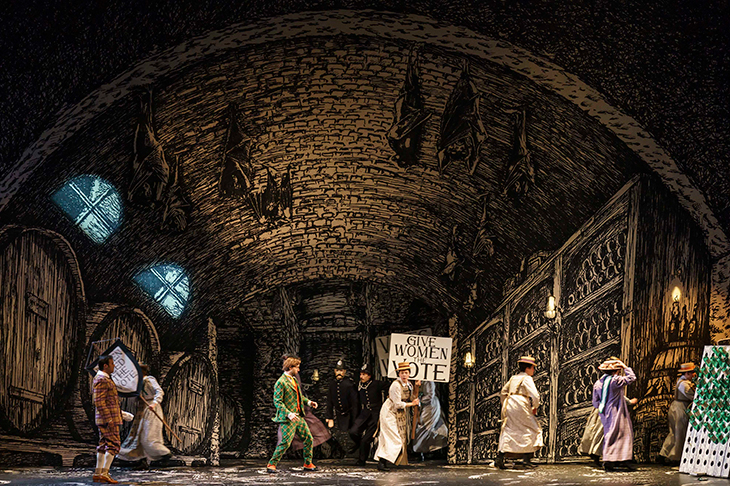
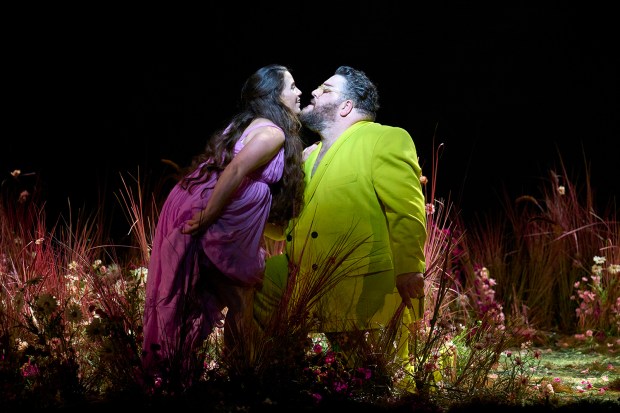
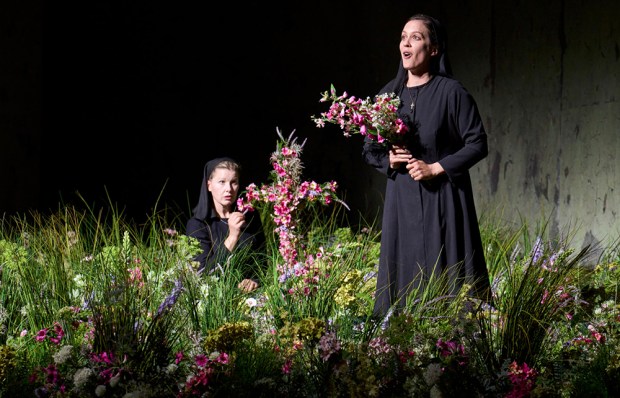
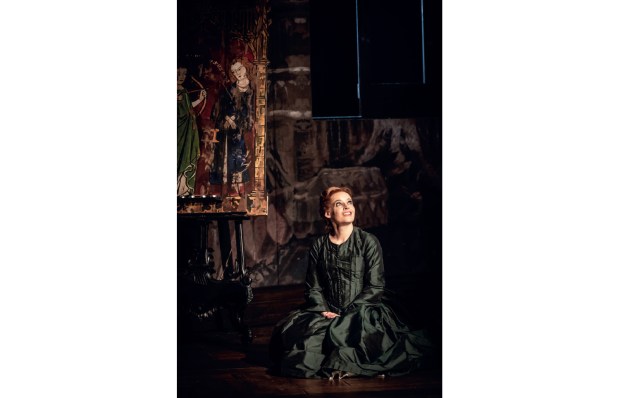
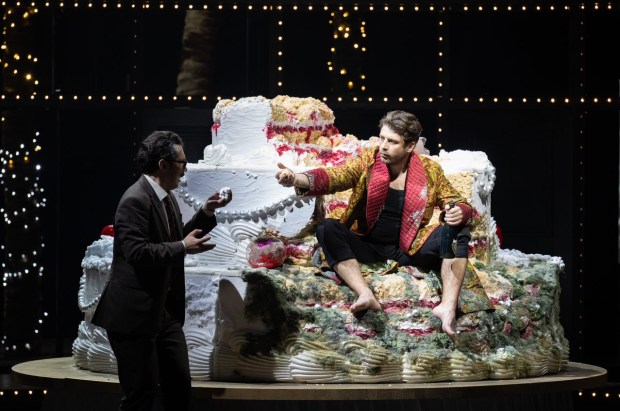
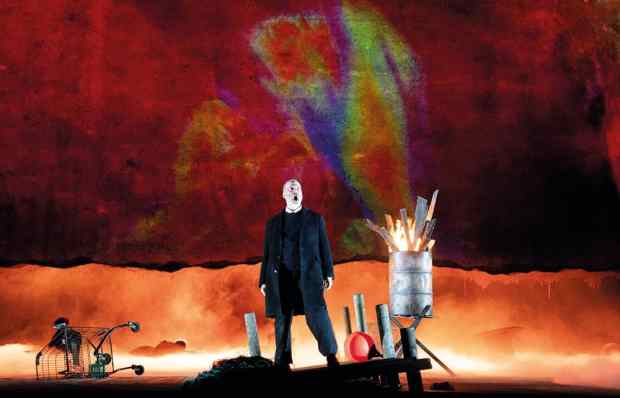
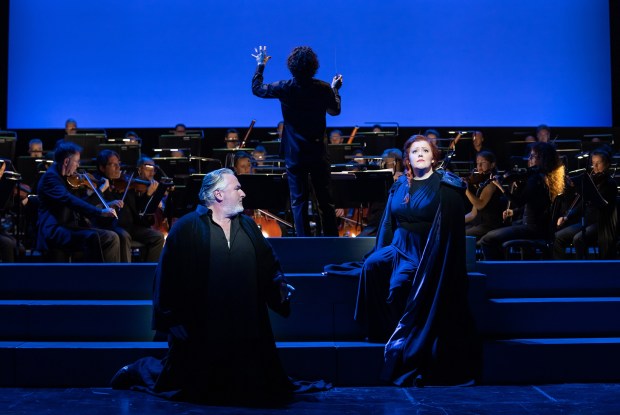






Comments
Don't miss out
Join the conversation with other Spectator Australia readers. Subscribe to leave a comment.
SUBSCRIBEAlready a subscriber? Log in